This is an archive of information released in the past.
Disclaimer: It may contain broken links or outdated information. Some parts may not function in current web browsers.
*Visit https://humans-in-space.jaxa.jp/en/ for the latest information.

The Logo for the next Kibo-ABC small space experiment "AHiS" has been selected
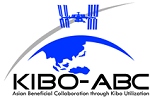
The logo for SSAF2016 / AHiS (Asian Herb in Space) mission has been selected by Kibo-ABC member countries. The logo design was provided by NSTDA, a Kibo-ABC member agency from Thailand. With its simple form that depicts a growing seedling cracking out of its seed and changing color from blue to green along its upward growth, the logo indicates a life growing in space. This design also represents the Milky Way galaxy.
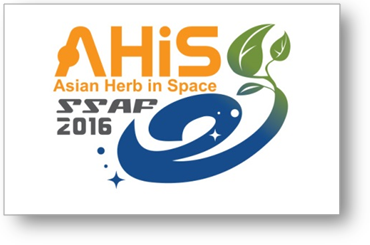
Third mission "SSAF 2016/AHiS": Analysis of returned sample cultivated in Kibo
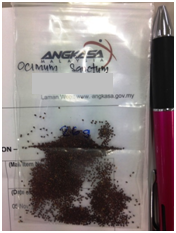
Holy Basil Seed
The third SSAF program of Kibo-ABC will step forward into the next stage of small space experiments in "Kibo". SSAF is a simplified experiment program which is devised to be optimal for beginners to "Kibo" experiments and further to save time and expense compared to regular space experiments. Mission name "AHiS" is named by ANGKASA Malaysia, the proposer of this mission.
"Tulsi", also called "Holy Basil", was nominated by Malaysia to be grown together with Sweet Basil onboard the Kibo/ISS where both will be germinated and grown for a month. Then the samples of each herb seedlings will be brought back to the earth, for further experimentation and analysis.
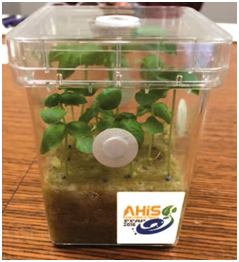
Sweet Basil (Ground experiment)
The seeds will be packed in the "AHiS flight plants box" made specifically for this experiment and will stay inside this box during flight. ISS Astronauts will conduct procedures to cultivate the seeds on board "Kibo". The herb seed used for this experiment is very small compared to Azuki seed (SSAF2013), and the germination of the seeds takes longer. As light is necessary for germination, the seeds being brought onboard will be cultivated under Kibo's fluorescent lamps. By using the "AHiS plant box", ISS astronauts can easily observe the continued growth of the seedlings, which could help impart therapeutic benefits.
AHiS mission is tentatively scheduled to be conducted this year, with the participation of all Kibo-ABC member countries.
History of SSAF
The SSAF (Space Seeds for Asian Future) program is one of three main programs of Kibo-ABC activities, aimed to accumulate experience of Kibo using experimental processes that develop member countries' potential for capacity building in terms of more advanced space experiments utilizing Kibo.
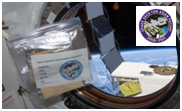
First mission "SSAF 2010-2011": Sample Launch and Return
Seeds from Asian countries launched to the ISS/Kibo and returned to earth were distributed among students who participated in this program, and the students grew the seeds on the ground for observational experiments.
Second mission "SSAF 2013": Sample Launch, Cultivation on ISS, and Ground reference experiment
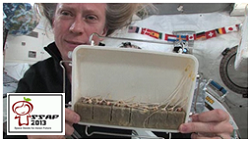
The Azuki seed was launched by HTV-4 to ISS and the germination of the seed in the microgravity environment on board Kibo was observed with the help of astronauts in the ISS. Participants observed the ground-based germination experiment of the same kind of seeds as those grown in space, and compared these with the images sent from ISS/Kibo showing the growing seedlings. The seeds were cultivated in a light-blocked aluminum container bag with only water supplied from outside. As the Azuki seed contains nutrients inside its embryo by nature, the seeds germinated in seven days without light. The event of germination and a tensile test of the stem was filmed in orbit. The participants experienced the procedure in the ground-based experiment, by cultivating the same Azuki seeds in the ground with a similar environment as Kibo/ISS and compared these with the those cultivated on Kibo/ISS.
| Copyright 2007 Japan Aerospace Exploration Agency | Site Policy |
